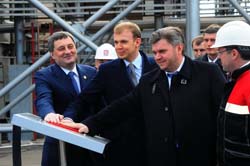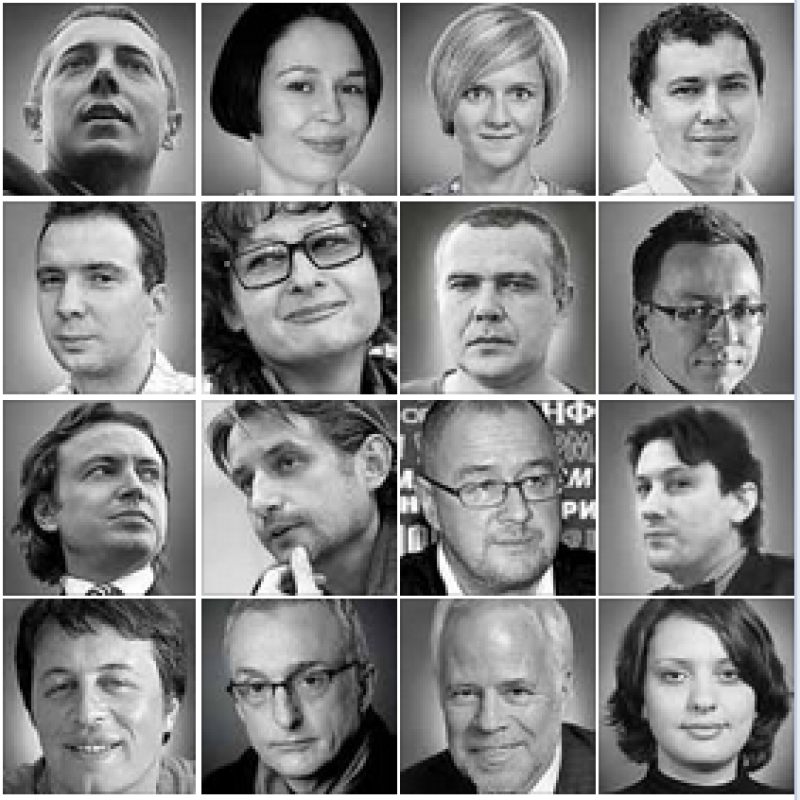“From the representatives of the owner we received the message saying that, taking into account tough relations with the chief editor, there is probably no way we can find common ground and we have to discuss conditions for exit,” she said.
While chief editor Mikhail Kotov rejected the accusations of censorship, the journalists have complained that a number of stories have been killed without explanation, including pieces on the advisers of First Deputy Prime Minister Serhiy Arbuzov and a new information policy of the ruling Party of Regions. "When we asked why we are not writing about that, we were told that nobody would explain to us anything," Kobernyk said.
Kotov released a statement on Wednesday that said, "The current situation is a simple administrative case inside the editorial staff which absolutely has nothing to do with influencing the information policy or the management of the media holding. Moreover, this act looks strange to me on the eve of signing an agreement about independent policy, a consensus which was reached last week.”
He explained the departures as "a result of inconsistencies inside the editorial staff and ambitions of some of the staff seeking extra benefits."
According to the Kyiv Post, the departing journalists include "the print version’s managing editor Borys Davydenko, three editors and three correspondents, the web edition’s managing editor Oleksandr Ruban, two editors, two correspondents and an art director, besides Kobernyk."
The mass resignation was spontaneous; none of the 13 journalists had planned to leave the publication before November 12, says Kobernyk.
The new departures follow the resignation of several Forbes Ukraine journalists in June who left to protest the magazine’s new ownership by gas mogul Serhiy Kurchenko. The Ukrainian Kurchenko, 27, rose to wealth and power suddenly, drawing interest from investigative reporters.
Forbes Ukraine journalists Sevgil Musaeva and Oleksandr Akymenko reported being intimidated during their investigation of Kurchenko before he purchased UMH Group, the parent company of the publication. The pair asked their publisher for a bodyguard, with Musaeva noting that “We were in panic because all the sources were telling us: don't write this story." Serhiy Kurchenko (middle) and Energy Minister Eduard Stavytsky (right) participate in a symbolic March 29 launch of the Odessa Oil Refinery, one of Kurchenko's latest acquisitions. © UNIAN
Serhiy Kurchenko (middle) and Energy Minister Eduard Stavytsky (right) participate in a symbolic March 29 launch of the Odessa Oil Refinery, one of Kurchenko's latest acquisitions. © UNIAN
"And it [the panic] still lingers,” Akymenko said.
The pair left after Kurchenko purchased Forbes.au. Musaeva said that she could not work for a man she spent six months investigating, while Akymenko, an Organized Crime and Corruption Reporting Project partner, described the takeover as a "personal tragedy."
Another Forbes Ukraine staff member to leave over the Kurchenko purchase, former editor-in-chief Vladimir Fedorin, had announced his plans to resign several months before he departed in order to give "the people [he] hired the time to decide, whether to leave or stay." The Kyiv Post reports that, in addition to the voluntary resignations, several other journalists were forced to leave. According to Kobernyk, one journalist was fired for not “speaking positively about the new owner."
Kobernyk also fears legal liability. She explained that the management at Forbes Ukraine had not yet approved of the resignation notices, and journalists might be liable for lawsuits launched against the publication.
Kurchenko's deal with UMH Group, reportedly costing between US$400 and $500 million, closed on November 5. FOCUS magazine evaluated Kurchenko's net worth as at least US$650 million as his company GazUkraine-2009 has emerged as one of Ukraine's largest petroleum entities.
According to Fedorin, the purchase of UMH group was motivated by a desire for media influence ahead of the Ukrainian 2015 presidential elections.






